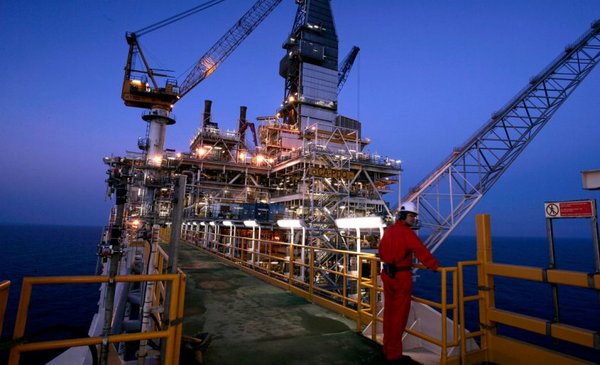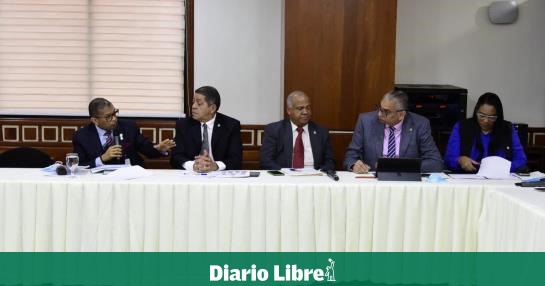In recent months, they have processed changes on the world stage that are having an impact on the hydrocarbon industryand that can once again put Uruguay on the map of offshore exploration (maritime platform).
There are essentially three elements that are playing in favor. One of the most obvious is the rise in commodities, including oil whose value had already been rising and worsened with the beginning of the war between Russia and Ukraine. With prospects for price levels to remain above US$90 and US$100 per barrel are once again considered for projects that would not be considered in another price scenario.
A second key element is the need to alternative sources of supply of oil and gas that the world has. Today the outcome of the war in Europe generates uncertainty regarding the availability of Russian natural gas in the future, for example.
And there is a third point that are the important discoveries of deposits in the waters of Namibia, whose geology is very similar to that which exists in the Uruguayan territorial sea. There Shell and Total Energies recently discovered oil and gas in two areas in that part of Africa, which have been described as very promising, according to specialized media.
“There is growing interest” in Uruguayand companies that in the past withdrew can return, the president of Ancap, Alejandro Stipanicic, admitted to FM Gente de Maldonado on Monday.
May and November
Currently there are no exploration contracts in force in the country, and there are only contracts for the commercialization of acquired data, by which service companies carry out interpretation of available data or studies based on field surveys already carried out in the last 15 years.
But the Open Round system is in force, in which oil companies can present themselves to qualify and bid at any time. Through this route, two stages are carried out per year with the opening of bids. The next window is in May and the other in November. If there is competition for the same area in the same semester, the offers are compared and the area is awarded to the offer with the highest score.
In this instance, the companies have the possibility of qualifying exclusively for the exploration period without drilling, for the exploration period with drilling, or for the exploration and exploitation periods. Today six areas are offered offshore, according to information published by Ancap. In the entity there is optimism that international companies will once again attract interest.
For Stipanicic, the oil exploration that Uruguay has been doing for 40 years “It takes value again” because the discovery of oil and gas deposits in Namibia “closes a hypothesis”, and that is that in the Uruguayan geological basins “there could be the necessary conditions for there to be oil deposits”.
“With new geological information from discoveries, with existing information, with market prices and, above all, due to the world’s need to obtain alternative sources, our border basins are gaining value again. That does not mean that we are going to have oil, there is a long way to go,” he added.
The latest background
The current area allocation system has more flexible conditions than the previous ones and began later than in 2018 the bidding for 17 oil blocks in the sea (Uruguay Round III) will be deserted. Although in that instance the British Tullow Oil and the Brazilian Azilat presented themselves to qualify, later they did not raise offers.
At that time, the expectations of awarding contracts were very moderate, given that the drop in international crude oil prices had led to the withdrawal of projects seeking higher risk and cost, such as offshore.
It was also loaded with a history that was the negative result of the French Total that in 2016 drilled on the offshore platform and found no oil. This result led to the awarding of the awarded area in 2017. In the cases of the Tullow OIL-Inpex-Statoil consortium and the multinational Shell, the companies withdrew after the exploration stage and did not proceed to the drilling phase of a well.
With the new open round format, in 2019 the American oil company Kosmos Energy submitted offers for two blocks, but withdrew from the contract negotiation process. And in 2020 an offer was received from the Bahamas Petroleum Company for an area (to be studied by the Executive Branch).
Although there have been no commercial discoveries so far, there is an extensive database that can be used for future exploration projects. A total of US$ 1,075 million have been invested in hydrocarbon exploration in Uruguay between 2007 and 2020. And the sale of information and contracts with oil companies have generated income for Ancap of US$ 37.1 million in the period 2009- 2020, according to data accessed The Observer.
It is also worth remembering that the big oil companies like Exxon Mobil, Chevron, Shell, Total Energies and BP, among others, had a 2021 with strong gains. That year marked the recovery of oil and gas prices after the blow caused by the pandemic in 2020. These better numbers have contributed to boosting the commitment to renewable energies in line with decarbonization plans, but without totally discarding investment in hydrocarbons.







